HAPPENING LATER: The Literary and Cultural Studies Program (LCSP) and PLUME will be hosting "Creatives as Climate Warriors: Responses from Curators, Writers, Students, and Activists" at SEC B 201A from 2:00 to 4:00 PM. | @Aidan_TheGUIDON #TALABIntegralEcology

HAPPENING NOW: This Talakayang Alay sa Bayan (TALAB) event, composed of four speakers, will explore what a humanities training can do to promote environmental consciousness and the care of the planet. | via @Aidan_TheGUIDON #TALABIntegralEcology
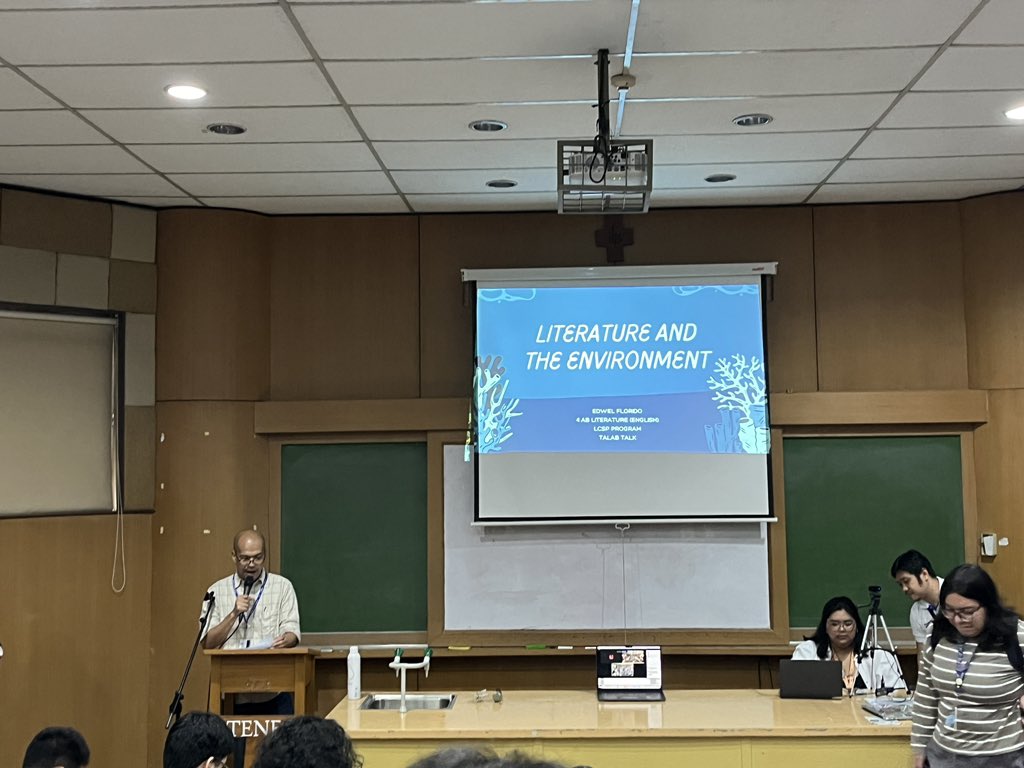
The first speaker is Edwel Florido, a 4 AB Literature student, who will map the interdisciplinary connections of literature and the environment. |via @Aidan_TheGUIDON #TALABIntegralEcology
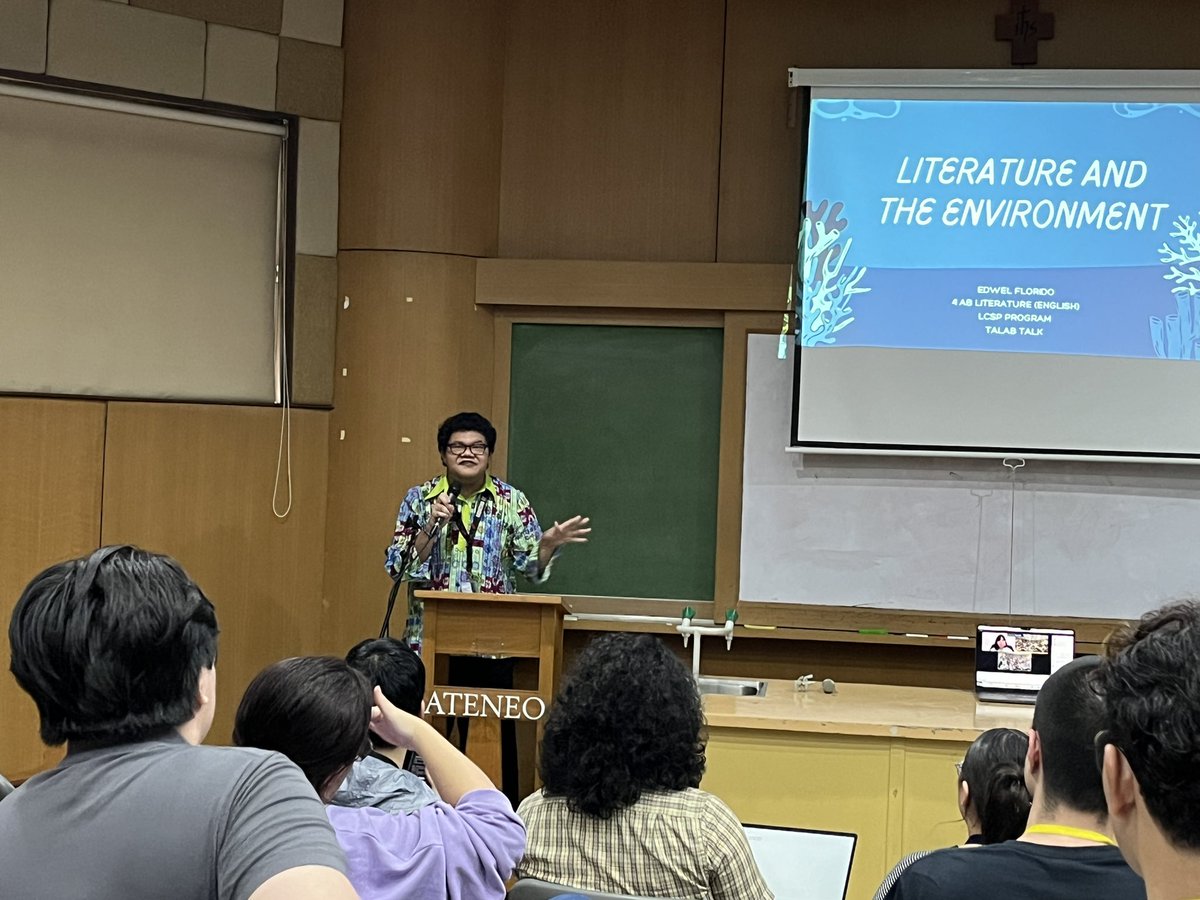
Florido brings up interdisciplinarity, a subject discussed in their Literature and Environment elective, and how literature can expand the perspectives many have about the environment. | via @Aidan_TheGUIDON #TALABIntegralEcology
Using Rob Nixon’s concept of slow violence, Florido poses the question: How can we convert into image and narrative the disasters that are slow moving and long in the making? | via @Aidan_TheGUIDON #TALABIntegralEcology
The second speaker for today is Samantha Domingo, the co-curator of the Philippine pavilion for the 18th International Architecture Exhibition. She is meeting us virtually from Poland to discuss how urban design inspired her art exhibit. | via @Aidan_TheGUIDON…
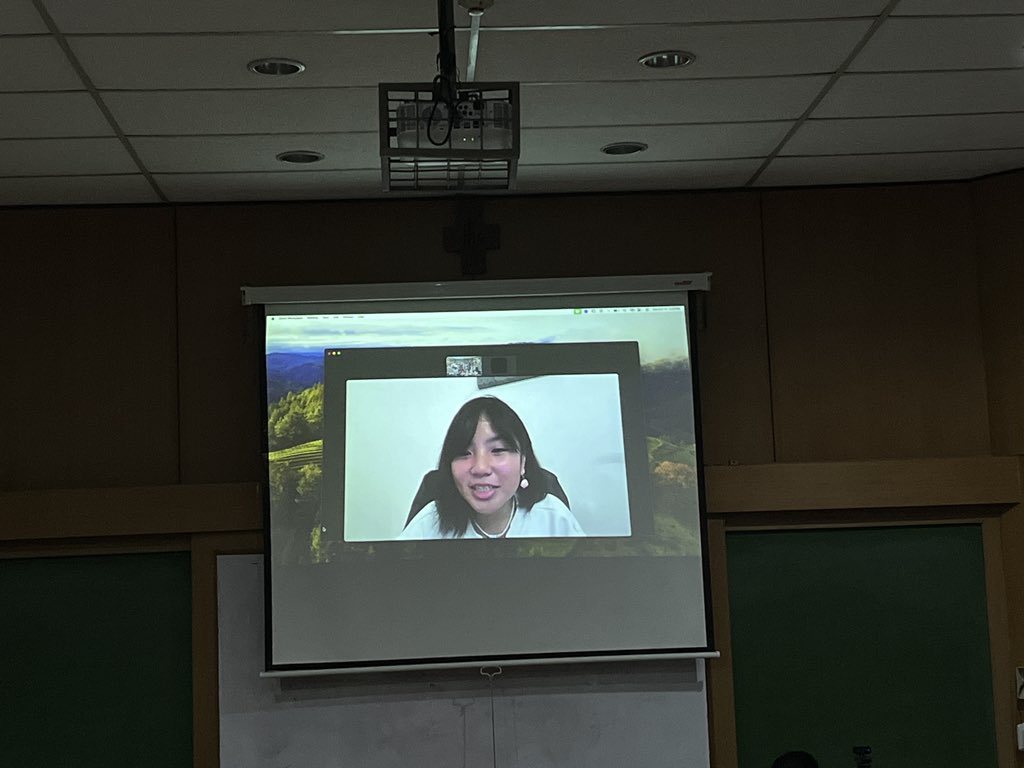
Domingo shares her exhibit's focus: estuaries—areas where freshwater meets the sea. These zones are vital ecosystems where people build and sustain communities. | via @Aidan_TheGUIDON #TALABIntegralEcology
Domingo highlights a critical issue: the relationship between people, water, nature, and organisms in estuaries. During the pandemic, many lived in shanties along these areas—how do they assess their connection to their environment? | via @Aidan_TheGUIDON #TALABIntegralEcology
As part of the exhibit, a bamboo structure was built in the estuary community. This public space invites interaction and serves as a functional area for the people living there. | via @Aidan_TheGUIDON #TALABIntegralEcology
The third speaker for today is Beatrice Tulagan, a climate organizer for 350.org and writer, who will discuss how environmental activism helps to reverse climate change through writing. | via @Aidan_TheGUIDON #TALABIntegralEcology
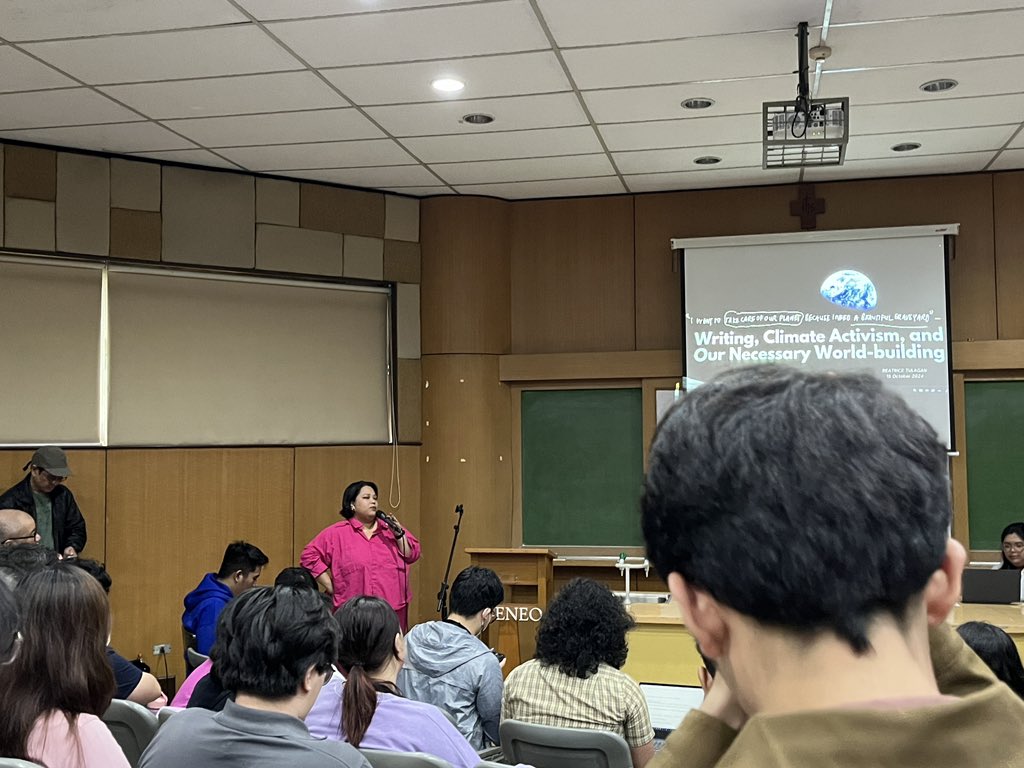
TULAGAN: Activism if anything has always been constructed as breaking down something, but it’s also a pathway to creation. | via @Aidan_TheGUIDON #TALABIntegralEcology
Tulagan sees activism as a form of resistance, just like writing: Writing is creation, and activism is creation. | via @Aidan_TheGUIDON #TALABIntegralEcology
TULAGAN: All writing is political because it’s always a question of who gets to write. | via @Aidan_TheGUIDON #TALABIntegralEcology
According to Tulagan, writers and organizers share one vital role: world-building. Both resist the current world order, imagine new possibilities, and create narratives that drive the movement toward the world we deserve. | via @Aidan_TheGUIDON #TALABIntegralEcology
TULAGAN: To organize and to write on a burning planet is to recognize that resistance and creation are necessary survival strategies. | via @Aidan_TheGUIDON #TALABIntegralEcology
TULAGAN: We exist on the same historical timeline as climate emergency, imperialist greed, and senseless wars—but this planet also holds everyone we ever loved, everyone we care for, and all our poetry, song, dreaming and art. | via @Aidan_TheGUIDON #TALABIntegralEcology
The fourth speaker for today is Glenn Sevilla Mas, a playwright, who will discuss the real-life environmental inspirations behind his Palanca award-winning play Children of the Sea. | via @Aidan_TheGUIDON #TALABIntegralEcology
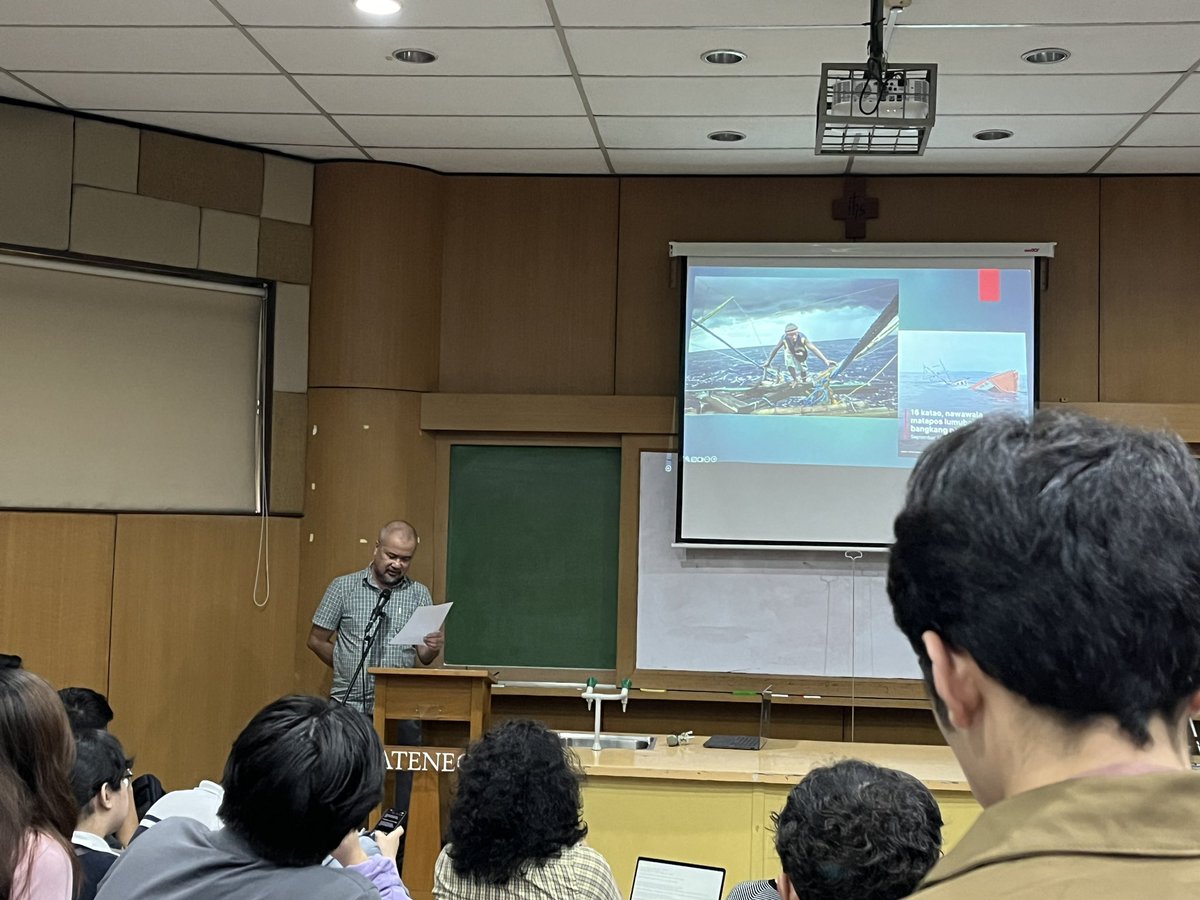
Mas dramatically reads an excerpt from his play. The play is about a poor family in the island of Caluya in Antique who struggle to travel by boat to the city because of a storm. | via @Aidan_TheGUIDON #TALABIntegralEcology
Mas shares a video of him reading another excerpt from the play revolving around a fight between characters Osmar and Estrella. Osmar wishes to travel but Estrella refuses, citing the tragic fates that befell Osmar’s relatives in the sea. | via @Aidan_TheGUIDON…
The speakers are now answering questions from the audience. | via @Aidan_TheGUIDON #TALABIntegralEcology
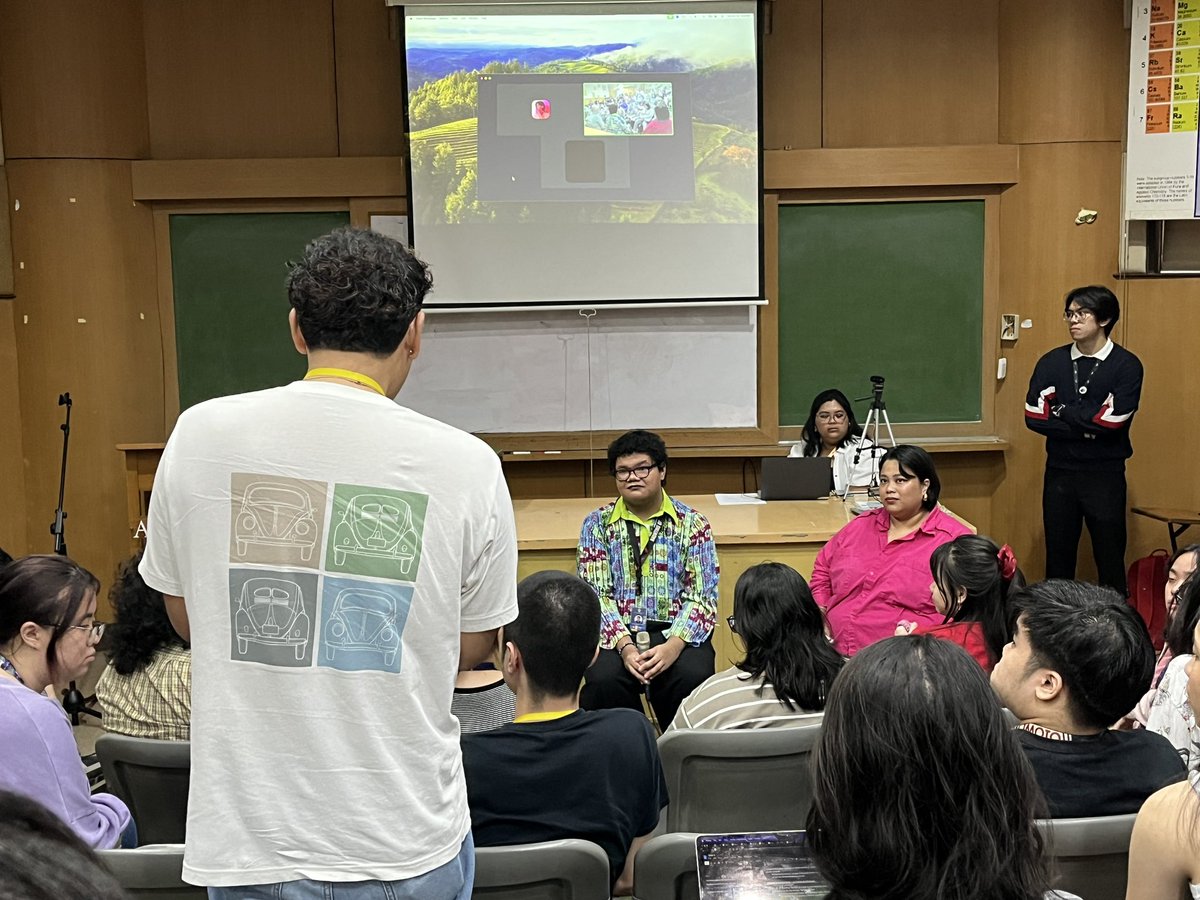
Tulagan emphasizes that writing is all about listening. By listening, we learn and remove ourselves from the center of the narrative. Those most affected by the issues, like the climate crisis, hold the power to tell their own stories. | via @Aidan_TheGUIDON…
Mas shares that, as a playwright, their goal isn’t to offer solutions. Instead, it’s to provoke and unsettle audiences, encouraging them to reevaluate their values and question what they hold dear. | via @Aidan_TheGUIDON #TALABIntegralEcology
Florido believes that the youth can take a more active role in the climate conversation by engaging in dialogues on social media as well as exploring means of education. | via @Aidan_TheGUIDON #TALABIntegralEcology
TULAGAN: There are dominant narratives that I don’t think the arts have a beautiful, sophisticated, single-bullet answer to. The beauty of the arts is that it asks you to take a second, third, fourth, and fifth look. | via @Aidan_TheGUIDON #TALABIntegralEcology
TULAGAN: The role of the youth has always been to ask, “Bakit ganito?”…What selves do we leave behind after we are gone? | via @Aidan_TheGUIDON #TALABIntegralEcology
As a poet, Domingo advises making use of your senses to identify, define, and empathize with the struggles surrounding you. | via @Aidan_TheGUIDON #TALABIntegralEcology
This concludes our coverage of “Creatives as Climate Warriors: Responses from Curators, Writers, Activists, and Students.” | via @Aidan_TheGUIDON #TALABIntegralEcology
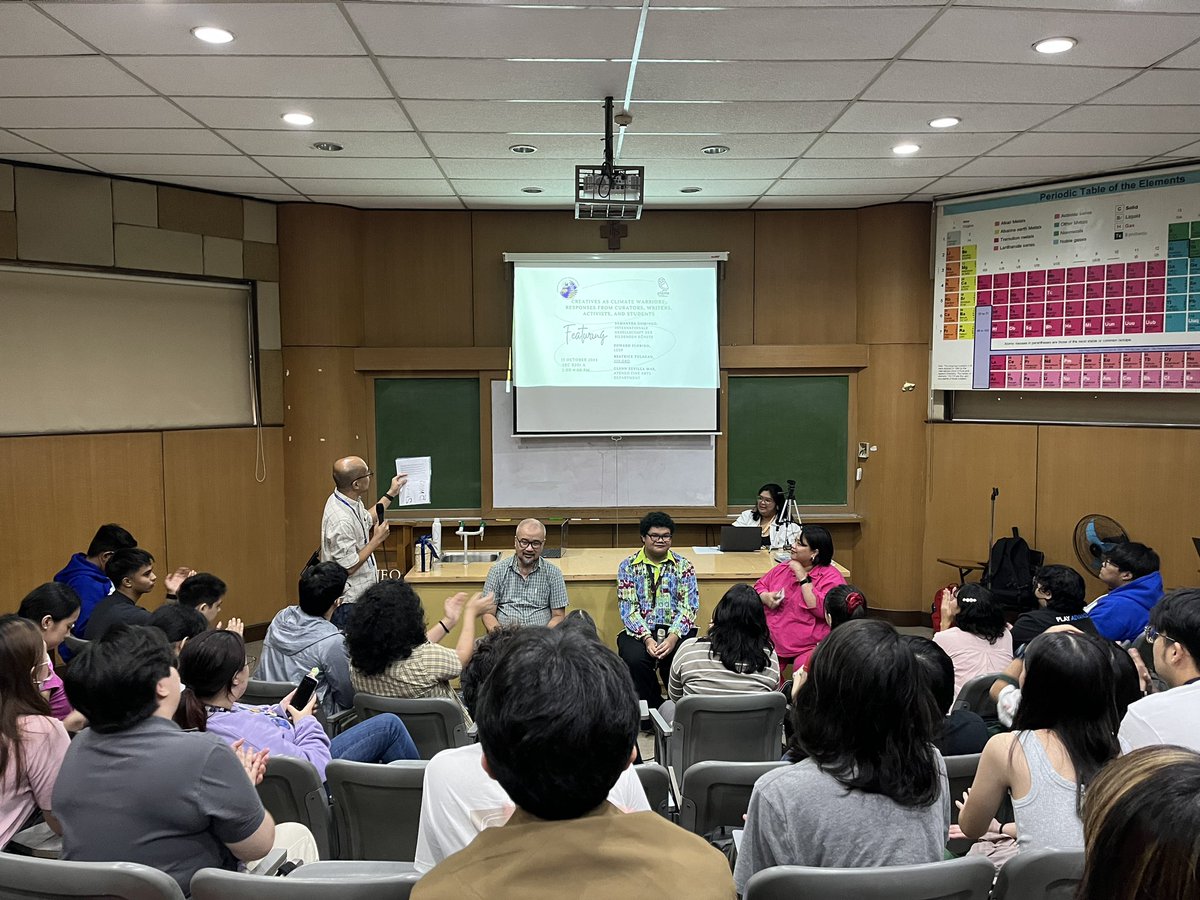
United States Trends
- 1. Thanksgiving 382K posts
- 2. Golesh 2,259 posts
- 3. Fani Willis 13.4K posts
- 4. Trumplican 2,962 posts
- 5. #WipersDayGiveaway N/A
- 6. Hong Kong 16.1K posts
- 7. Khabib 7,048 posts
- 8. Camp Haven 6,921 posts
- 9. Riker N/A
- 10. Tom Hardy 1,364 posts
- 11. Stranger Things 161K posts
- 12. Africans 26.6K posts
- 13. NextNRG N/A
- 14. Ruth 13.9K posts
- 15. Elijah Moore 1,007 posts
- 16. #TejRan 4,090 posts
- 17. Idris 7,545 posts
- 18. Fassbender N/A
- 19. #Wednesdayvibe 3,676 posts
- 20. Karoline Leavitt 29.1K posts
Something went wrong.
Something went wrong.

